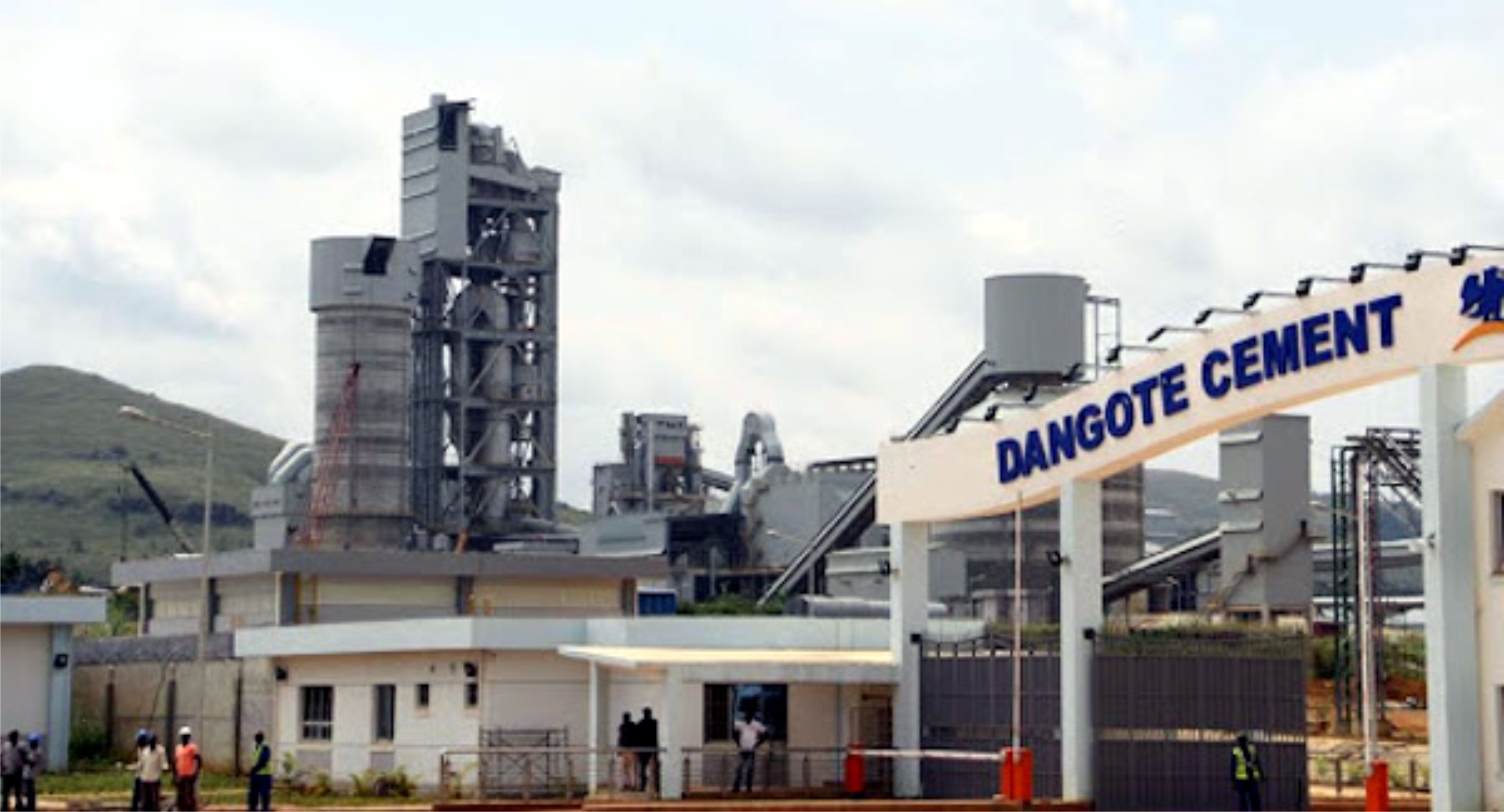Business
Dangote Cement Posts N761.4bn Revenue In Nine Months

Dangote Cement Plc has posted a revenue of N761.4 billion in nine months ending September 30, 2020, indicating a 12 percent increase over revenues for the corresponding period in 2019.
A statement by the Group Chief Executive Officer, Dangote Cement, Mr Michel Puchercos, also announced sales totaling 19.21 million tonnes for the period which ended on September 30, 2020 as against 18.02 million in 2019, showing a 6.6 per cent increase for the period.
Puchercos, who expressed delight over the achievements of the company in terms of EBITDA and strongest third quarter volumes, said: “The Cement Group’s revenue went up by 12 per cent to N761.4 billion compared to N679.8 billion in 2019 with domestic operations accounting for N535.51 billion which compared to N467.88 billion up by 14.5 per cent. Pan-Africa operations contributed N232.61 indicating a 9.1 percent increase over N213.20 billion in 2019.
“Despite a challenging environment, Group volumes for the nine months were up by 6.6 per cent and group EBITDA was up 17.1 per cent, at a 46.6 per cent margin.
“This quarter has really shown the ability of Dangote Cement to meet the strong recovery of the cement market in Nigeria and Pan-Africa after a challenging Q2. In Nigeria, we have witnessed a strong appetite for real estate investment and the recovery of infrastructure spending, including more concrete roads.
“Sales volumes in Nigeria were up 40 per cent in the quarter and Pan-Africa reached a record high EBITDA margin of 24 per cent in the quarter.
“We continue to focus on our export strategy and are on track to ensure West and Central Africa become cement and clinker independent, with Nigeria as the main supply hub. Clinker exports have steadily been ramping up in Q3 after our maiden shipment in June 2020, whilst land exports have also resumed,” he said.
He added that in the period under consideration, Dangote Cement has exported seven clinker vessels from Nigeria via the Apapa export terminal, while plans are on track to commission the Port Harcourt export terminal before the end of the year.
Puchercos said: “Dangote Cement’s strategy to offer high quality products at competitive prices is meeting customers’ expectations in Nigeria and across the continent, where we continue to deploy excellent marketing initiatives and operational excellence.
“We remain committed to protecting our staff and communities by being fully compliant with health and safety measures in all our territories of operation. We are focused on adapting to the rapidly evolving markets in which we operate”.
Business
Agency Gives Insight Into Its Inspection, Monitoring Operations

Business
BVN Enrolments Rise 6% To 67.8m In 2025 — NIBSS

The Nigeria Inter-Bank Settlement System (NIBSS) has said that Bank Verification Number (BVN) enrolments rose by 6.8 per cent year-on-year to 67.8 million as at December 2025, up from 63.5 million recorded in the corresponding period of 2024.
In a statement published on its website, NIBSS attributed the growth to stronger policy enforcement by the Central Bank of Nigeria (CBN) and the expansion of diaspora enrolment initiatives.
NIBSS noted that the expansion reinforces the BVN system’s central role in Nigeria’s financial inclusion drive and digital identity framework.
Another major driver, the statement said, was the rollout of the Non-Resident Bank Verification Number (NRBVN) initiative, which allows Nigerians in the diaspora to obtain a BVN remotely without physical presence in the country.
A five-year analysis by NIBSS showed consistent growth in BVN enrolments, rising from 51.9 million in 2021 to 56.0 million in 2022, 60.1 million in 2023, 63.5 million in 2024 and 67.8 million by December 2025. The steady increase reflects stronger compliance with biometric identity requirements and improved coverage of the national banking identity system.
However, NIBSS noted that BVN enrolments still lag the total number of active bank accounts, which exceeded 320 million as of March 2025.
The gap, it explained, is largely due to multiple bank accounts linked to single BVNs, as well as customers yet to complete enrolment, despite the progress recorded.

